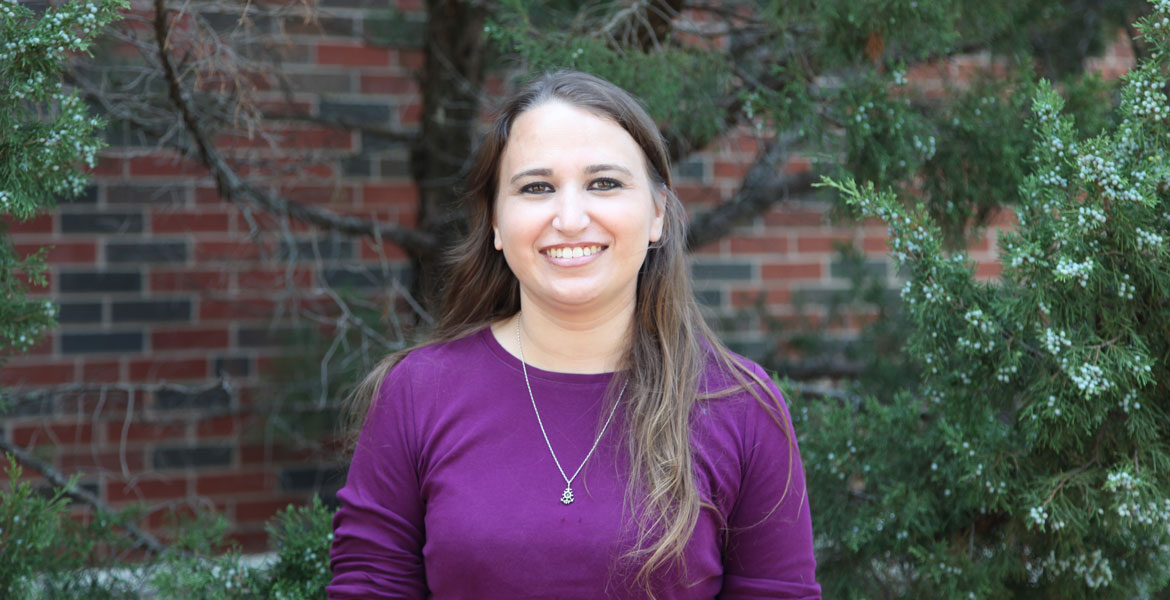
Whetsel creates organization to help pets of domestic violence victims
Monday, September 9, 2019
Jonna Whetsel of Oklahoma City is a second-year veterinary student at Oklahoma State University’s Center for Veterinary Health Sciences. She recently established the Network for Pets of Domestic Violence Victims (NPDVV). NPDVV is designed to unite animal care resources with domestic violence shelters.
“The Network for Pets of Domestic Violence Victims was built to connect animal care resources with domestic violence shelters,” explained Whetsel. “Many women will postpone leaving dangerous situations if they can’t bring their pet with them. Many domestic violence shelters don’t have the facilities to accept pets. This was a way to not only gather information but to educate as well.”
The idea was born out of a final project for a course in Whetsel’s graduate program. She has a master’s in veterinary forensics.
“My master’s is from the University of Florida,” continued Whetsel. “It’s a new program. I was pretty excited when I found it. I come from a law enforcement family and I was working at the Oklahoma State Bureau of Investigation at the time. It was a perfect fit of my passion for animals and law enforcement. And being a distance learning program, I could do it while I worked.”
The final project was about animal cruelty in interpersonal violence. The class was tasked with creating a training presentation for someone with some aspect of what they had been learning.
“I chose domestic violence and animal care resources,” said Whetsel. “My training presentation was about how to help domestic violence shelters as an animal care person, an animal shelter or veterinarian. When I was making that presentation, I thought why don’t I just do something instead of teaching about it. So I decided to get online and I built a website. I worked on it for about two years. It officially launched July 29.”
Domestic violence shelters nationwide can go to the website to find what help is available. Animal shelters, animal rescues, veterinarians, even individuals can go to the website and learn what they can do to help.
“If they are willing, they just fill out the forms online,” said Whetsel. “Domestic violence shelters who need help fill out the forms online. I get those, put them in a database and match them based on location. The contact information is sent to the domestic violence shelter so that they will have a list of available, willing animal care resources in their area. The National Link Coalition shared information about NPDVV in their September newsletter. I’ve gotten submissions from California to Maine and all the states in between.”
It was through her master’s program that Whetsel decided to pursue a degree in veterinary medicine.
“I’ve always loved animals and been compelled to help them and jump in if there is a problem. I don’t think it was really a singular decision (to become a veterinarian) as much as it was a journey to get to where I’m supposed to be. During my master’s program I worked with other veterinarians who were in the class. Working with them as colleagues gave me the confidence I needed to realize that maybe I could do more and I can take this further.”
Whetsel will earn her DVM degree in May 2022. While she says it is too soon to tell what she will do upon graduation, there is no telling what opportunities will present themselves. In the meantime, domestic violence shelters have a new resource to help them find a place for pets of domestic violence victims.
If you would like more information or to volunteer, visit the Network for Pets of Domestic Violence Victims at www.NPDVV.org.
MEDIA CONTACT: Taylor Bacon | Public Relations and Marketing Coordinator | 405-744-6728 | taylor.bacon@okstate.edu
